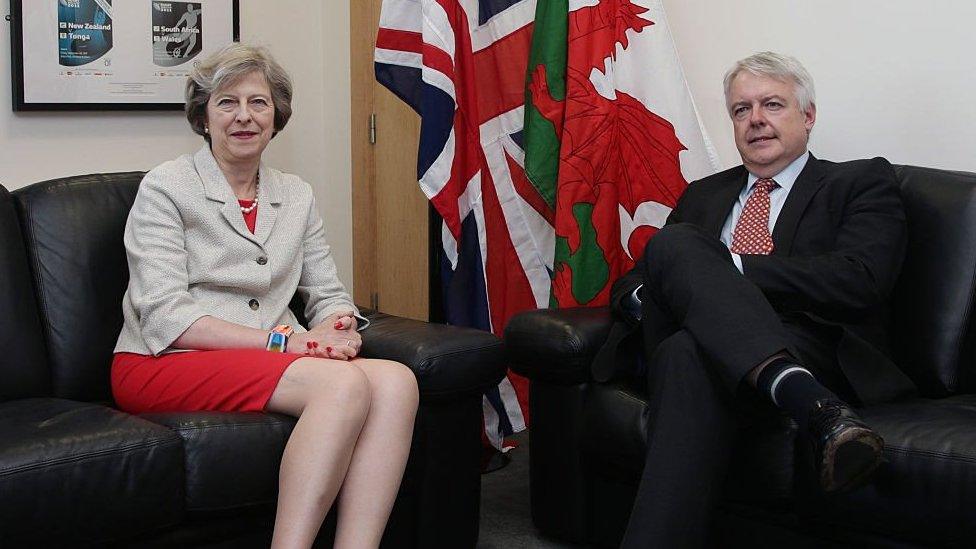Wales awaits as May prepares to trigger Article 50
- Published
- comments

In Wales we are fond of the H-word. It has often been used to describe something quite interesting that hasn't happened before rather than something genuinely historic.
But few would dispute that the letter Sir Tim Barrow will hand to Donald Tusk on Theresa May's behalf will not change the UK's history.
The prime minister described it on Tuesday as "one of the most significant moments the UK has faced for many years". She may well feel "the hand of history", external on her shoulder but she is unlikely to use that phrase.
After chairing a cabinet meeting and answering MPs' questions, Mrs May will make a statement to MPs about the triggering of Article 50.
'Engaged'
The prime minister promised that the Welsh Government would be "fully engaged" in the Brexit process but it has not been difficult to highlight differences between the approach of the UK and Welsh governments.
Theresa May believes continued membership of the single market "would mean being bound by EU laws. That would mean in practice not leaving the EU."
The Welsh Government - and Plaid Cymru, external - believe continued "participation" in the single market is still possible if the freedom of movement rules apply only to those with a job.
But it is also easy to exaggerate the differences between the two governments. As recently as January, a spokesman for the first minister said they were not "irreconcilable"., external Welsh Secretary Alun Cairns has spoken of "common ground" on free trade.
'Frictionless'
Theresa May wants "the greatest possible access" to the single market, "tariff-free trade with Europe and cross-border trade there to be as frictionless as possible". Carwyn Jones has spoken of seeking "full and unfettered access" to that single market., external
Although his speech to the Welsh Labour conference in Llandudno did not mention immigration (a priority for the UK government) he told delegates: "We have to get real about this - Brexit is happening. We must respect the will of the people."
He also warned against a Whitehall "power grab" of powers from Brussels. Some ministers have privately floated the thought that EU structural funds would be more effectively administered by the UK government. But Mrs May has acknowledged that devolved institutions could acquire more powers after Brexit, as EU involvement in UK agriculture and fisheries ends.
At first minister's questions on Tuesday, Carwyn Jones did raise concerns there would be no money to replace structural funds or farming subsidies after 2020, although presumably he expects Labour to win the UK general election that year. Labour at Westminster has promised to maintain structural funds for the poorest areas.
Triggering Article 50 marks not only the beginning of the formal Brexit process, but it also the moment when reality bites. In the nine months since the referendum, we in the UK have effectively been talking to ourselves.
Now the realisation dawns that there are 27 other countries in this negotiation who will ultimately decide whether the "demands" of the "Leave" and "Remain" camps are met.